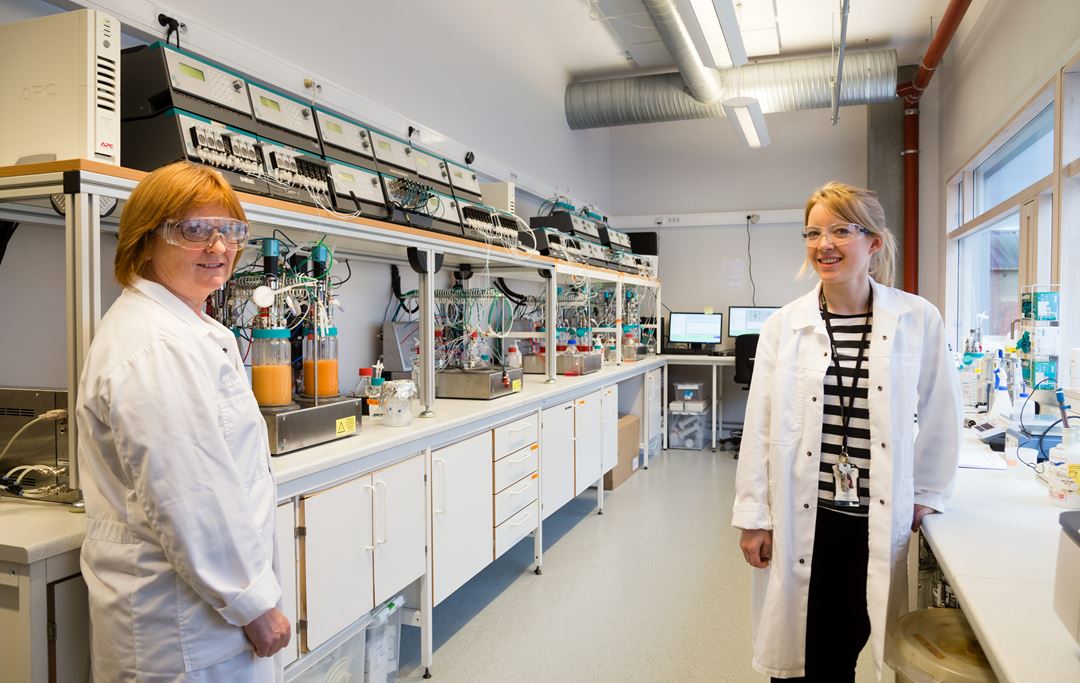The cultivation facilities are supported by a wide range of analytical instruments, including HPLCs and several different mass spectrometry instruments. This enables us to do metabolomics, monitor substrate consumption and formation of product(s) and by-products.
Miniaturized cultivations:
Two liquid handling workstations (Tecan Evo and Beckman Coulter Core System) equipped for washing, filling, shaking, filtration, solid phase extraction, incubation, cultivation (including fed-batch), and optical readout (absorbance, luminescence or fluorescence) of microtiter plates. Robotic arms move consumables and microtiter plates within the workstations and storage units (total capacity approx. 180 microtiter plates) and shaking incubators (total capacity 12 microtiter plates, 42 in static mode). In addition, we have 3 separate well-plate shakers, each with a capacity of 50-100 microtiter plates (depending on plate type).
Laboratory scale fermentors:
We have two fermentation laboratories, both suitable for different fermentation processes (batch, fed-batch, continuous, high cell density) under both aerobic and anaerobic conditions and with different configurations. Excellent and flexible process control and monitoring software for substrate feeding, pH, temperature, dissolved oxygen control and monitoring, airflow and off-gas analyses.
Laboratory 1: 16 Applikon fermentors (3 L) primarily for fermentation of bacteria, fungi and yeasts. More than 5000 fermentations have successfully been performed so far in this laboratory with numerous different strains and mutants for production of different products (bio¬pharmaceuticals, pigments, amino acids, organic acids, ethanol, butanol, enzymes, vaccines, and biomass)
Laboratory 2: Eppendorf/Dasgip fermentors (installed in 2012 and 2015) with a max. capacity of 16 parallel fermentations and several possible reactor configurations. Standard fermenters (1 and 2 L) for microbial fermentations, fermentors for cultivation of mammalian and fish cells, and photo-bioreactors for cultivation of phototropic bacteria and algae. The fermentors can be operated at 0-99 ºC, and thus be used for both psychrophilic and thermophilic organisms.
Pilot scale fermentors (GMO-facility).
50-L New Brunswick™ BioFlo® 610 fermentor (will be installed in May 2016), equipped with tempe-rature, pH, dissolved oxygen, pressure control and different impeller configuration. Several options for attachment of additional equipment such as more sensors, off-gas analysers, and filter units. In addition to fermentation, the reactor is suited for processing of biomass and enzyme processes.
300-L Chemap fermentor. Well equipped for microbial fermentations. In addition equipped with sensors for determination of cooling requirement and energy consumption, important inputs for further scale-up and techno-economic evaluation of the process.

